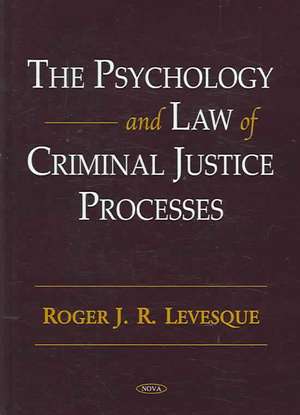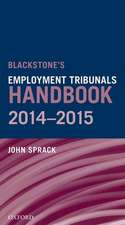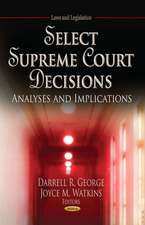Psychology and Law of Criminal Justice Processes
Autor Roger J. R. Levesqueen Limba Engleză Hardback – 4 aug 2005
Preț: 939.11 lei
Preț vechi: 1264.27 lei
-26% Nou
Puncte Express: 1409
Preț estimativ în valută:
179.72€ • 195.15$ • 150.96£
179.72€ • 195.15$ • 150.96£
Carte disponibilă
Livrare economică 01-15 aprilie
Preluare comenzi: 021 569.72.76
Specificații
ISBN-13: 9781594543128
ISBN-10: 1594543127
Pagini: 723
Dimensiuni: 186 x 261 x 32 mm
Greutate: 1.92 kg
Editura: Nova Science Publishers Inc
ISBN-10: 1594543127
Pagini: 723
Dimensiuni: 186 x 261 x 32 mm
Greutate: 1.92 kg
Editura: Nova Science Publishers Inc
Cuprins
Preface; Introduction; Criminal Justice Processes: Competing Ideologies, Recurring Principles, and Considering the Role of Psychological Science; Identifying Suspects; Searching Suspects; Seizing Suspects; Interrogating Suspects; Bargaining with Defendants; Judging Juries; Evaluating Experts; Determining the Defendants Mental State and Capacity; Sentencing Defendants and Predicting Criminal Tendencies; Treating and Controlling Offenders; Terminating the Life of Criminals; About the Author; Index.












